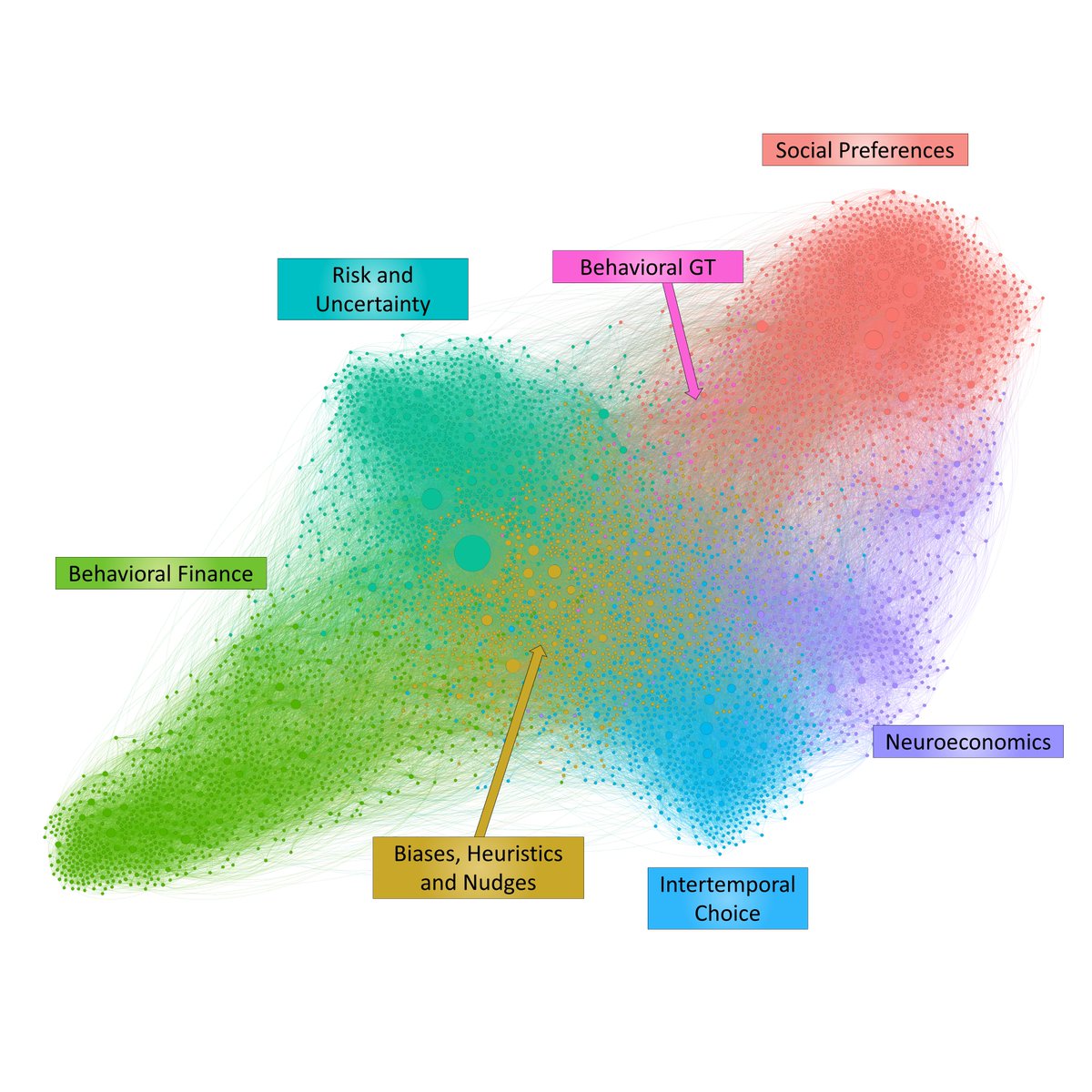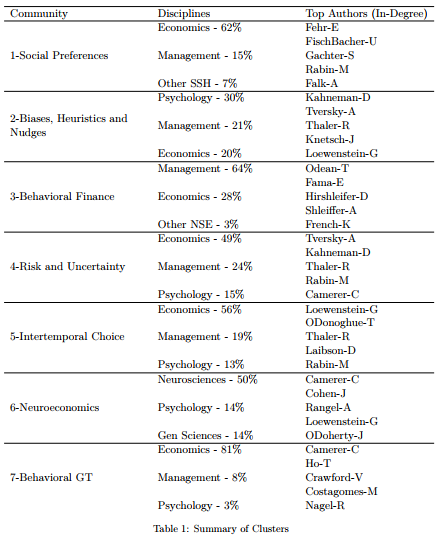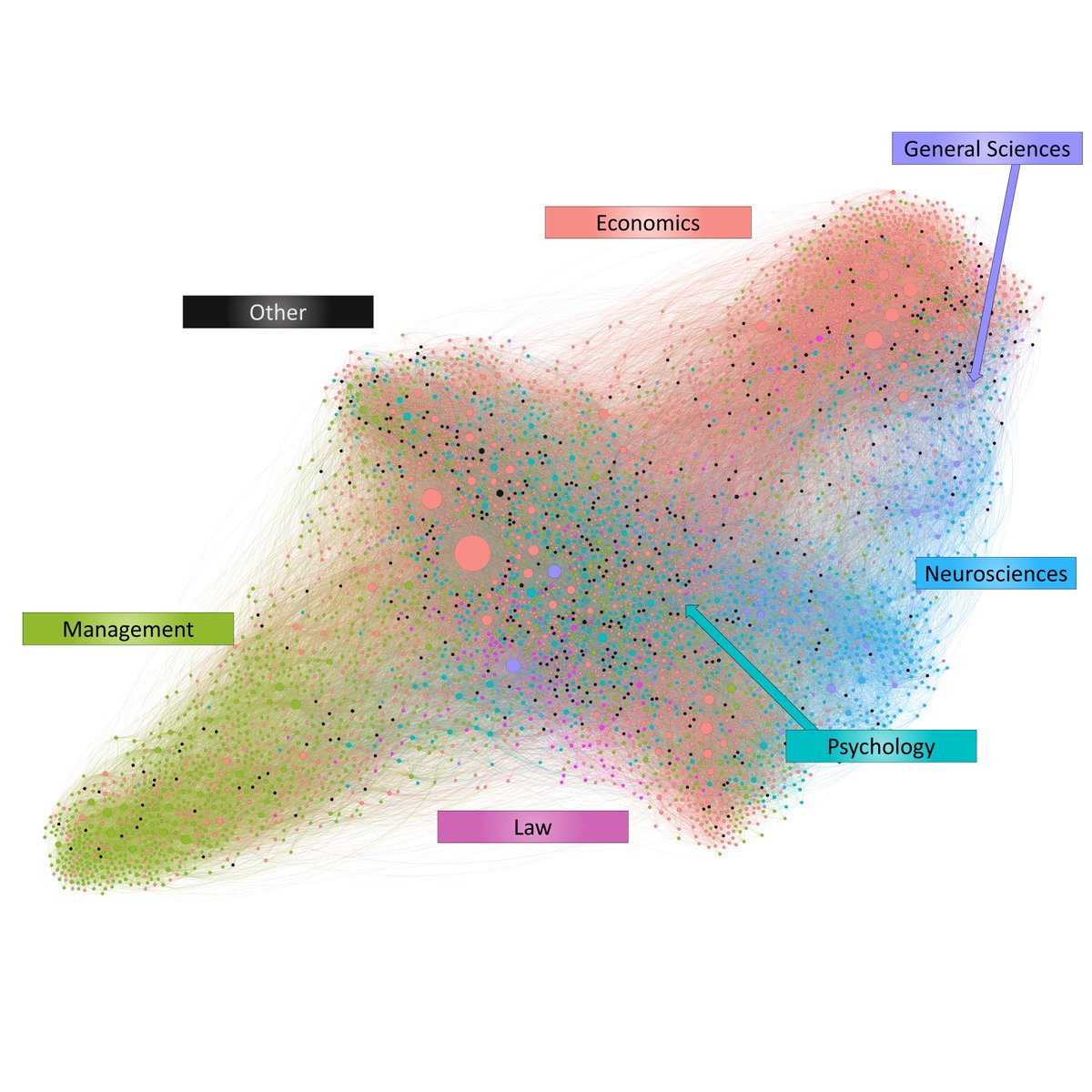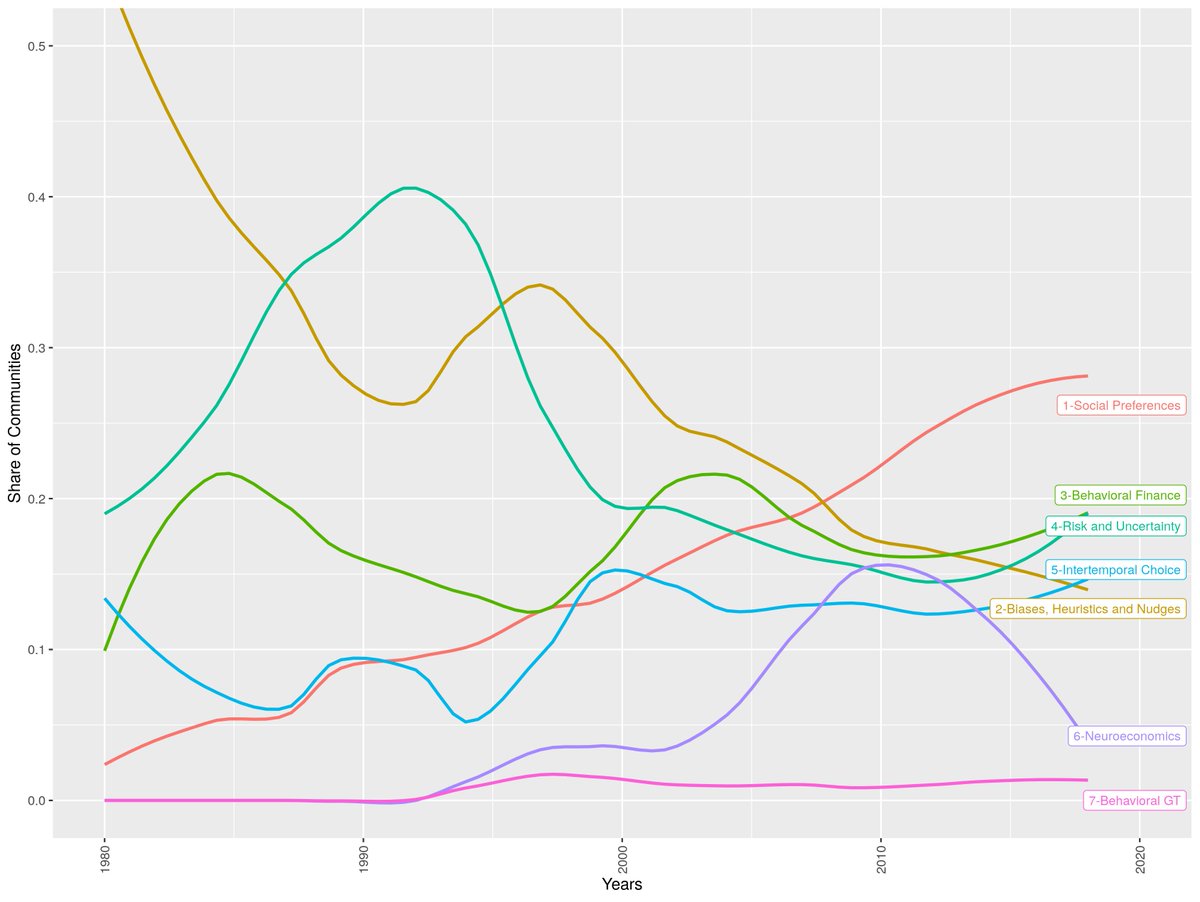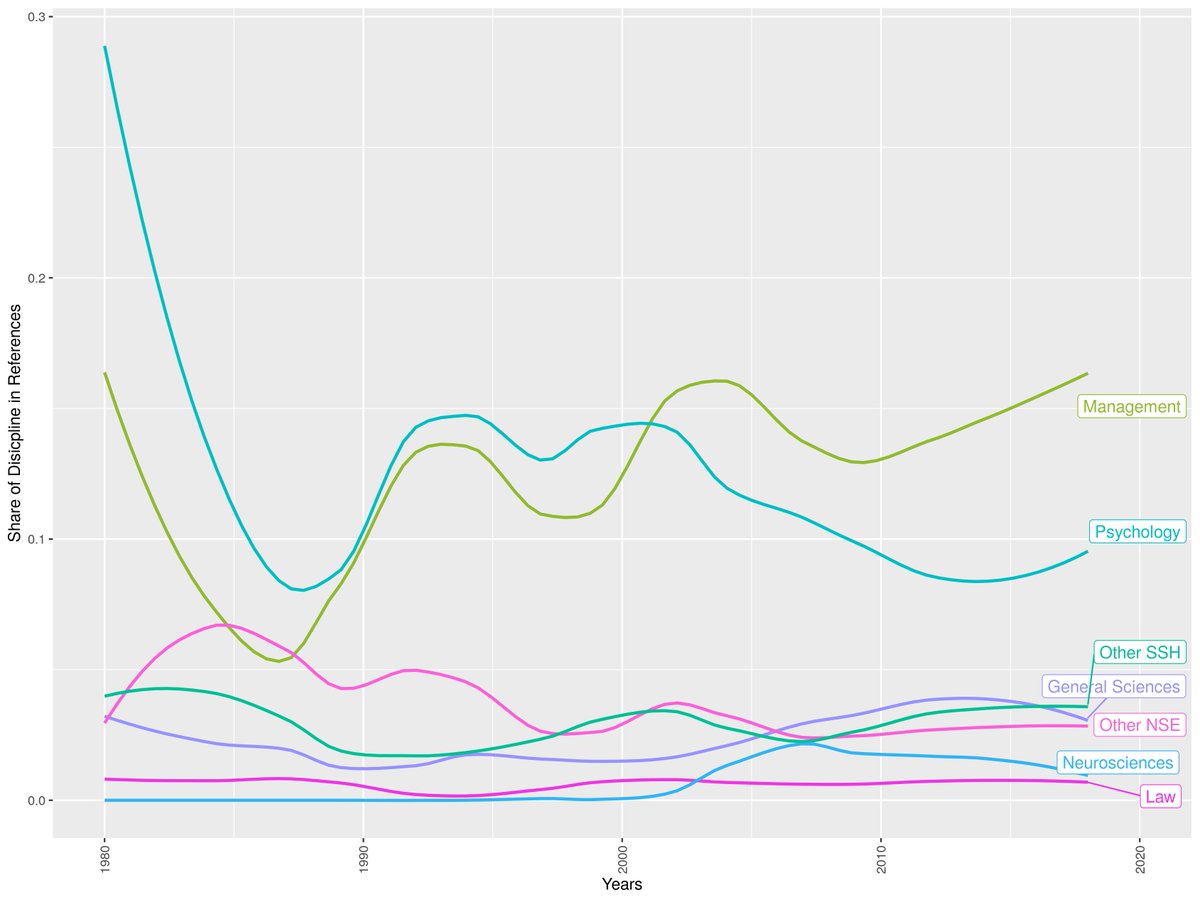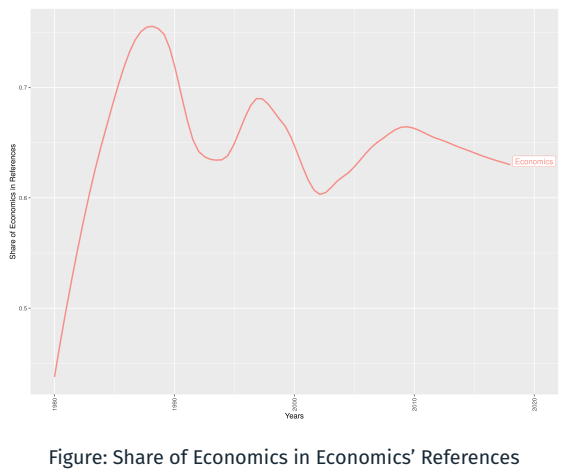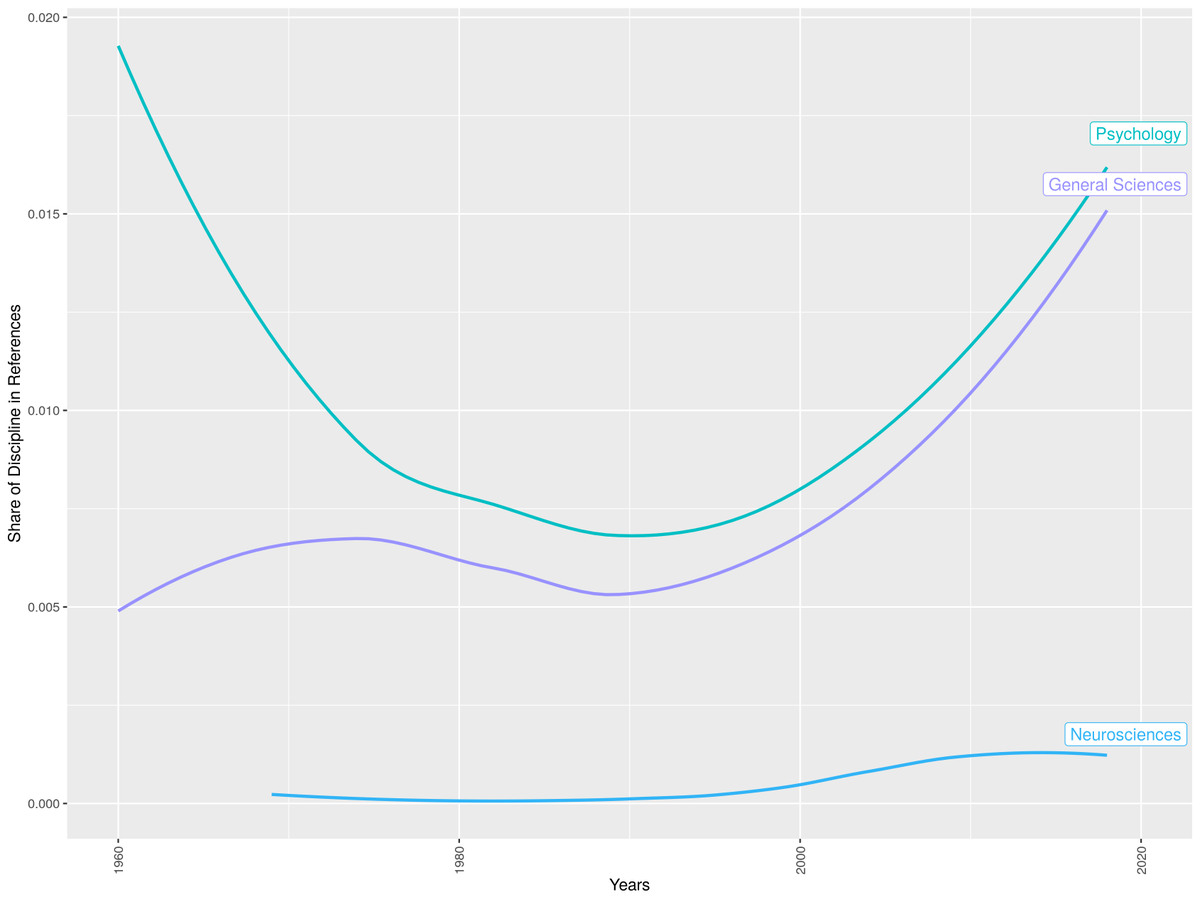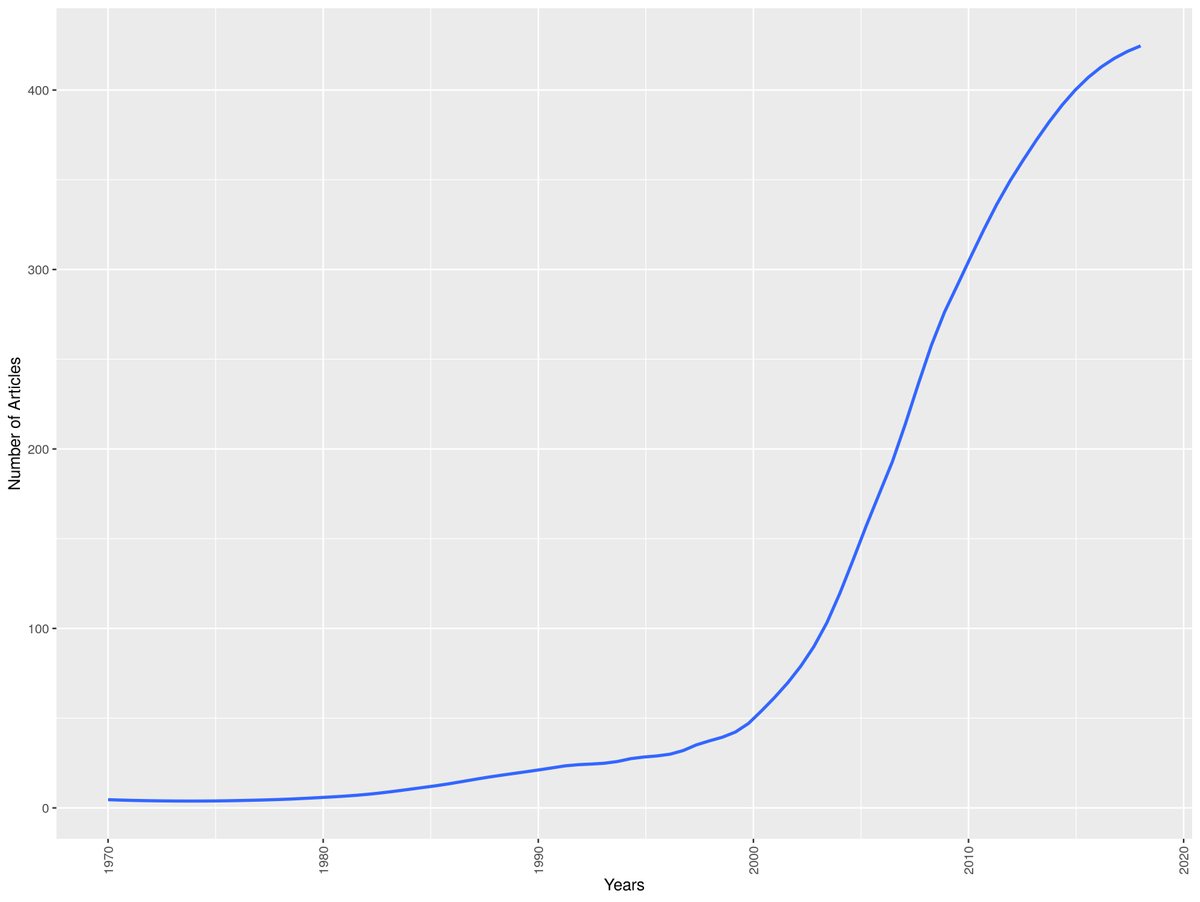1/ Is behavioral economics becoming less interdisciplinary? A thread on mapping and measuring the interdisciplinary practices of behavioral economics (BE) using 5 423 articles
2/ The publications of behavioral economists transformed rapidly since the field emerged. While in the 1980s, 40% of BE articles were in psychology, this proportion decreased to less than 15% by the 2010s
3/ This decreasing importance of psychology was not the result of a rise of economics. Instead, we find a rise of management (finance, consumer research, and marketing) + a variety of other disciplines
4/ We find major differences in the disciplinary composition of the different BE’s specialties: behavioral finance is mostly management; neuroeconomics mostly neurosciences…
5/ … and most others are mainly economics with psychology as a secondary discipline. One exception is the Biases, Heuristics and Nudges cluster where we find most of the (older) foundational psychological articles
6/ The disciplinary composition of BE transformed as the interest of behavioral economists changed: while Heuristics, Biases and Risk were very important clusters during the early years of the program, by the 2010s, the Social Preferences cluster became the dominant topic
7/ Beside disciplinary composition, another way to think about interdisciplinarity is too look at the interdisciplinarity of economics’ articles in the BE. Do they cite more psychology? Short answer: no
8/ We find less psychology, more management, but not necessarily more economics in the reference of economists. Moreover, economics’ articles in Social Preferences tend to be less interdisciplinary than in Risk or Time
9/ Overall, since the 1980s, we do find less interdisciplinarity in BE. However, there is a twist. The interdisciplinarity between economics and psychology did not actually decreased!
10/ If we look at the references of all economics’ articles, BE or not, we do find an increasing share of references to psychology. In 2010s, the share of citations from economics to psychology rose to a level similar to the 1960s!
11/ In the 1980s, behavioral economics was just a handful of individuals with strong ties to psychology (e.g., Kahneman, Tversky). They published in both disciplines, and economics articles had many references to psychology
12/ As the field became successful in the 1990s, and even more so in the 2000s, the number of behavioral economics’ articles increased rapidly; and individual articles became less intensely interdisciplinary
13/ The decreasing intensity in interdisciplinarity was compensated by the increasing number of articles in economics. The overall level of interaction between economics and psychology (as well as with general sciences) increased
14/ Behavioral economics acted as a bridge-building program. Following an intense period of interdisciplinary exchanges, the importance of psychology in individual BE’s articles decreased
15/ As BE became more popular, using psychological references in economics’ articles became more common, thus increasing the overall importance of psychology in economics
16/ Finally, while psychology is decreasing in importance in BE, this decreasing importance is not a return to self-contained economics. Instead, we see an increasing importance of a variety of other disciplines.
More on the methodology of this research soon!

 Read on Twitter
Read on Twitter